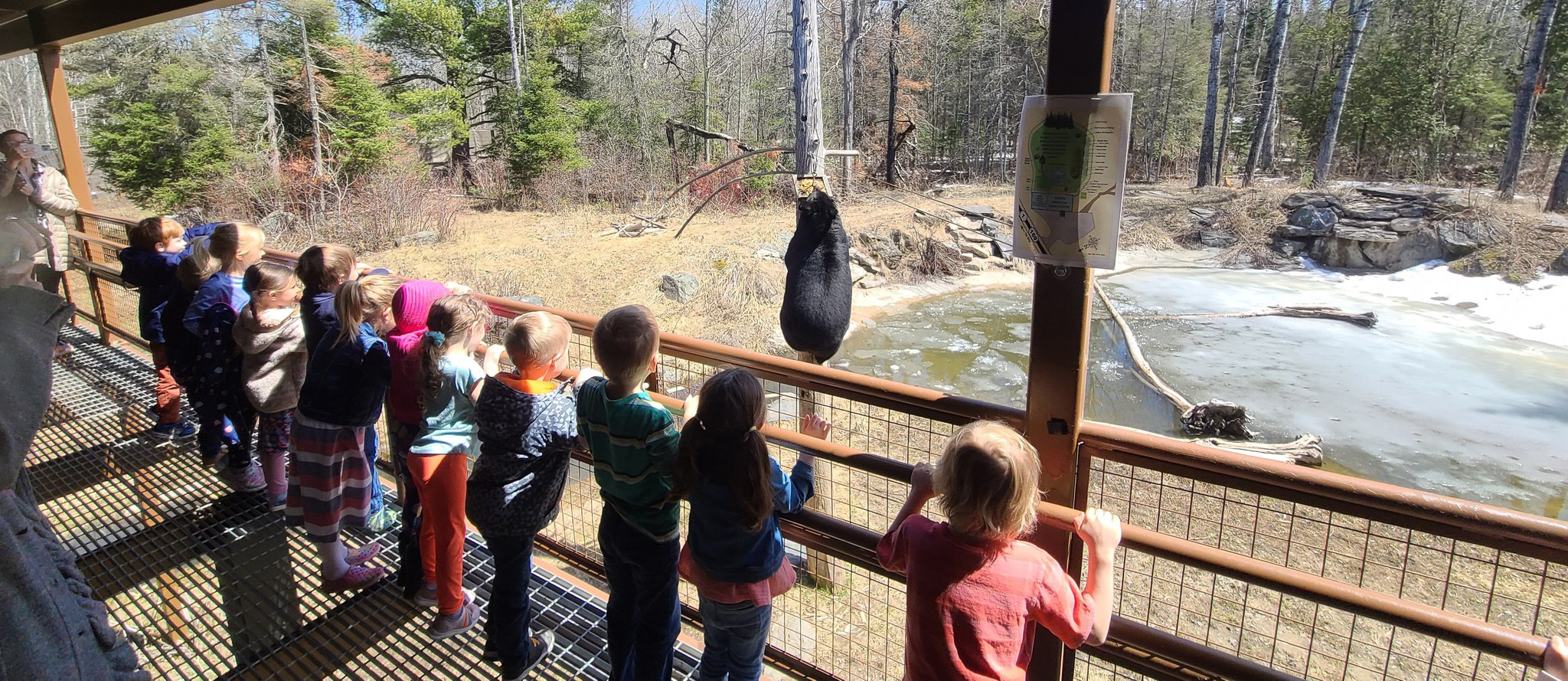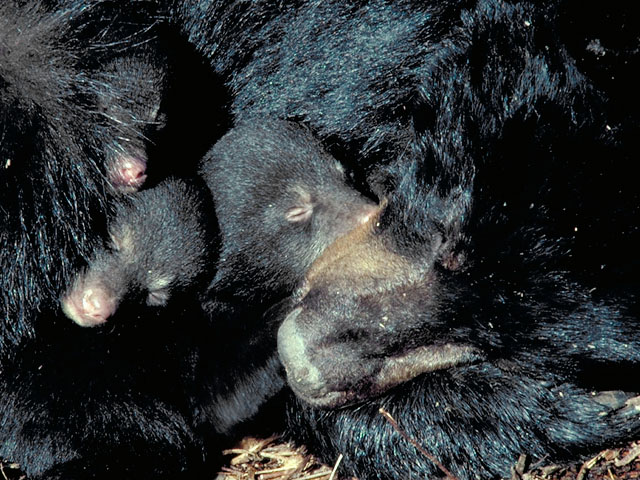

Care of Newborn Cubs
Newborn cubs are smaller, relative to their mother’s size, than the young of any other placental mammal. They are totally dependent on their mothers. Newborn cubs have little fur, weigh less than a pound, and can barely crawl. Three cubs is the most common litter size around Ely.
Around Ely, temperatures at the time of birth in January can be 60 degrees (F) below zero. Most dens are no warmer than the outside air because most den entrances are open. Some “dens” are simply nests on the ground surface.
The mother’s metabolism is slightly reduced, but she maintains a body temperature between 94° and 98°F, compared with approximately 100°F in summer. Her body temperature in the den is high enough for full mental function. She dozes when the cubs do but responds to every cry when they are cold, hungry, or need to eliminate body wastes.
She keeps the cubs warm by hovering over them and breathing on them with her head tucked under her chest. Her arms and legs make furry walls. She helps the cubs find her six nipples. She licks them to stimulate defecation and eats the feces to recycle unabsorbed nutrients and keep the den clean.
Newborn cubs have mouths shaped for sucking, and milk is their only food. The cubs do not hibernate. They have full metabolism for maximum growth rate. They nurse frequently and for long periods, making a motor-like hum that seems to tell mothers not to change position because everything is okay.

We are a 501(c)(3) non-profit that relies entirely on the support of visitors, merchandise sales and people like you. We do not receive any state or federal funding.
Help support our mission.
Donate Now